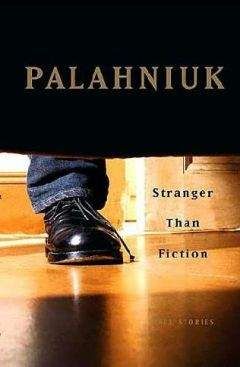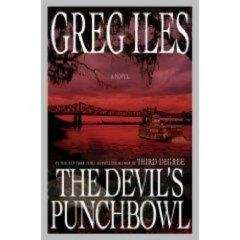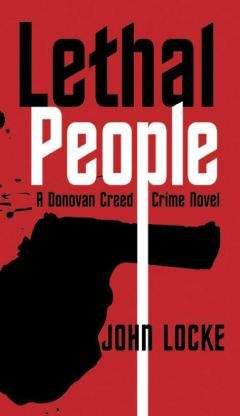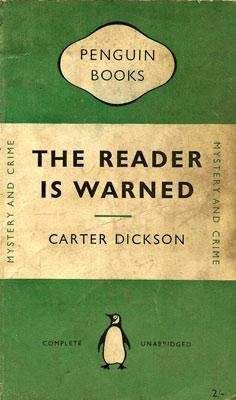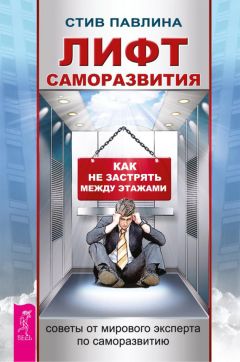John Lescroart - Son of Holmes
На сайте mybooks.club вы можете бесплатно читать книги онлайн без регистрации, включая John Lescroart - Son of Holmes. Жанр: Прочее издательство -,. Доступна полная версия книги с кратким содержанием для предварительного ознакомления, аннотацией (предисловием), рецензиями от других читателей и их экспертным мнением.
Кроме того, на сайте mybooks.club вы найдете множество новинок, которые стоит прочитать.
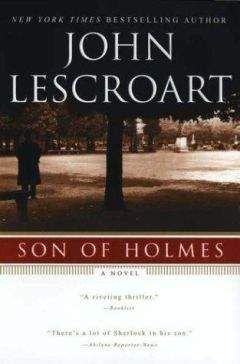
John Lescroart - Son of Holmes краткое содержание
Son of Holmes читать онлайн бесплатно
“What happened?” he asked.
Fritz came to the door as I stood to cross the room, and I told him to take the car to town and get the police. Paul and Henri stood where they had been sitting and watched in stunned silence. I walked to where Marcel lay and felt for his pulse. There was none.
“Get back! Get away!” I yelled at Lupa and Georges. Paul had gone out to the hall for his coat, and he returned, placing it over Marcel’s head. Georges limped back and forth across the room, hands thrust deep in his pockets. Tania had stopped crying and stood by the settee. Everything began moving at normal speed again, and everyone began talking at once. I went back to Tania and sat next to her, watching the others. Finally Lupa, who had been sitting, stood again and bellowed out, “Silence!” and we obeyed. “Let us sit,” he said, “and wait for the police.”
“Who are you to tell us what to do?” demanded Henri, who seemed quite shaken. Georges, standing next to him, put his arm around his shoulder. Paul sat alone by the fire, looking at the flames.
4
I had supposed that Jacques Magiot, an old acquaintance of mine and the chief of police, would have come out for the investigation, but he sent a young inspector and two gendarmes, who made it clear that their chief’s appearance was by no means necessary for the gathering of evidence. The flics stationed themselves by the door while the inspector walked around inspecting. He leaned down and sniffed the rug where the beer had spilled.
“Prussic acid,” he said.
“Some form of cyanide, at any rate,” I answered.
He nodded. “Are you familiar with poisons?”
“Oh come. The almond smell is distinctive.”
He noted something in his book.
The others stood about nervously. The inspector spent a bit of time looking at a spiderweblike impression on the coffee table and after a series of “ahems” said that he’d like to question each of us separately.
“But before I do, I will say that while you are all free to move about in town, no one is to leave Valence for any period of time without checking with the authorities.”
“But I don’t live in Valence,” said Paul. “I’m from St. Etienne.”
“In that case, monsieur, we will escort you to your home by way of the St. Etienne constabulatory, and you will report to them.”
While we waited to be called to the kitchen for questioning, Tania and I sat without a word on the divan, her arm linked into mine. She seemed too calm, almost to the point of breaking, as though she were under some unbearable pressure. Undoubtedly this local tragedy had turned her thoughts to her sons at the front.
The inspector first called Lupa, then Georges, Paul, Henri, Tania, and Fritz. The first four were led to the back door and excused, while Tania and Fritz waited in the kitchen after their questioning. The inspector interrogated me in the front room.
“Monsieur Magiot sends his compliments.”
I nodded.
“I’ve made no arrests. Have you any suspicions?”
“No.”
“I’m inclined to think of suicide. He was your close friend, was he not? Had he been unduly depressed?”
It went on in that vein for several minutes. I had no information for him, and he had formed no suspicions himself. He thought it odd that so few of my guests had been French, and asked me about it.
I shrugged. “They are my friends.”
Finally, a little after midnight, they left. Tania and Fritz came back to join me, and we sat drinking brandy for a time, pensive. The undertaker had come earlier, and my thoughts went back to Marcel’s body being removed. I closed my eyes and tried to imagine how he had been only that morning, but I could not. Perhaps it was better that way. I couldn’t think of him as a dead man yet. He was the friend of my childhood, and he was gone.
Tania and I went up to bed, leaving the room empty save for Fritz, who sat at the edge of one of the coffee tables, fists clenched and eyes glassy.
I awoke while it was still dark and silently got up. The house was oppressive. I needed to get away for a time.
Two days before, the Rue St. Philip had been warming to a new day as I had walked down it to meet Lupa for the first time. Now, at four thirty in the morning, with a light rain falling—still falling, I should say—it gave no hint that it could ever be a pleasant street. The cobblestones were slick and too widely spaced, and twice I nearly fell. It wasn’t cold, but the wet darkness kept me shivering.
I’d taken the bottle of cognac and headed for La Couronne, planning to see Lupa in the morning, resolving to enlist his aid. It was not professional. It was not even . . .
That didn’t matter. I had to do something about my friend’s death. At that moment, I wasn’t a professional, and I didn’t care.
The tables at La Couronne were chained in place, but the chairs had been moved inside for the night, so I pulled up an empty fruit crate and sat by the restaurant’s front door, leaning back against the building. With my coat, I performed the futile gesture of wiping the beaded drops from the table, though it was still raining. There was a small gaslight from within, and its slight glare fell across the table. The rain was so fine that it seemed to hang in the air. There was no wind.
I hadn’t been seated more than a minute when the door behind me opened and I found myself facing Lupa.
“Monsieur Giraud, would you care to come inside where it’s dry?”
I noticed that I was, indeed, very wet, and got up and followed him into the bar. He sat on a stool and looked at me without a word until I spoke.
“I’m surprised to find you awake,” I said.
“I was thinking about your friend.”
“Yes. I wanted to speak to you about it.”
“I don’t understand,” he said, standing and going around the bar. He poured himself a beer.
“I think you do.”
He took a long draft. “Come downstairs,” he said finally. He opened the door to the kitchen, and we descended.
“May I take your coat?” he asked. “I’m sorry, sir, but I neglect my manners. I am on edge. Come, let me take your coat. Do sit down.”
We’d entered another room behind the kitchen. It was warmly lit and pleasant. Three of the walls were covered with tapestries of a cheap variety, and there were several bookshelves and assorted stuffed chairs. I took one of them.
“I live here,” he explained. “You are now my guest. Would you care for some heated milk? Coffee?”
I looked carefully at this man who had been changed so completely by the act of my coming into his living quarters. He went into some other rooms to deposit the coat, then back to the kitchen, evidently to prepare the milk. For nearly a quarter of an hour I sat while he moved back and forth, bringing first the milk, then a pair of pajamas that he insisted I change into, though they were much too large, then a warm housecoat in which I wrapped myself. He stoked the fire, and before long we were sitting comfortably in silence.
“Now,” he said after a time, “what is it that you think I understand?”
I smiled. “I am not a fool, Monsieur Lupa. I am older than you, and perhaps not as naturally gifted, but I have been in my business—perhaps I should say ‘our’ business—for over twenty years, and I have learned a few things. My efforts have been checked and checked again since coming to Valence, and I feel that yours have been likewise. I think we should work together.”
“Indeed,” he said. “I didn’t know you’d worked as a chef.” Suddenly he chuckled. “Of course, I jest. I thought it would be necessary that we work together, but I wanted to be sure of you, and certain of your superiors were less than rapturous in their recommendations.”
I bridled somewhat and spoke in clipped tones. “You may be sure of me.”
“I know that. I have been satisfied. But have you? Can you be sure of me?”
My head was swimming with cognac and fatigue, and yet I immediately perceived the import of the question. Here, indeed, was a Rubicon of sorts, and I must either cast my die with this man or count him as an enemy. There was, there could be, no middle ground.
And what, in fact, did I know of him beyond the briefs, the hearsay, the professional reports that—and no one knew this as well as I—often hid as much as they revealed?
He was an agent. Of that there was no doubt. I was reasonably sure that he didn’t work for the Germans, but could I be as certain that he was committed, as I was, to the interests of France? Before hostilities had erupted, Europe had been a checkerboard of conflicting states, and even now, with the combatants clearly defined, only a fool would suppose that the goals of England, for example, everywhere coincided with those of France. Where did Lupa stand?
I felt his eyes boring into my own as his question hung in the room, and yet he didn’t seem inclined to press. Could I be sure of him?
The answer, of course, had to be no. We were both agents at war, trained to trust no one. Hadn’t Lupa been sitting in Marcel’s seat just before he’d been poisoned? But then another thought occurred to me: it really wasn’t my decision to make. I’d been ordered to find and work with Lupa. I didn’t have to trust or respect my superiors, but as a soldier I had to obey them.
And there was another point: I had already revealed myself to the younger man. If he was not to be trusted, then my usefulness here in Valence was at an end. Now my own vulnerability, here in Lupa’s quarters, could become my own best test of his credibility. Simply put, if I were alive in the morning, he would have proven himself worthy of my confidence. It may not have been the most professional of solutions, but in my wearied state it made a great deal of sense.
One final consideration, even more unprofessional, forced itself into my consciousness. With Marcel dead, perhaps I simply needed to trust someone to fill the hole he had left. With more instinct than reason, I felt Lupa to be the man for that role.
“I have to believe in you,” I said at last. “I have no choice.”
He sipped at his beer and stared into the fire. Quite some time passed. “I suspect everyone,” he said finally.
A wave of regret over the loss of my friend passed over me. “Please,” I said. “I need your help.” He started to blur before me as fatigue set in. I put my hand over my eyes and felt his come to rest on my shoulder.
“Come,” he said, “we’ll talk in the morning.”
He took me back to his quarters, down a hall that seemed to be a dead end. He put down a mattress on the floor and brought a thick blanket for it.
“Let us be careful,” he said almost gently. We were by now speaking in the familiar. “We’re going to be needing each other.” I lay down and blew out the candle beside me. He retreated a few steps, then stopped. “Do you mind if I call you Jules?”
“No.”
“Satisfactory.” Another pause. “I am very sorry.”
I slept for seven hours. When I woke up, my clothes had been sent out and already returned, so I dressed and walked back out to the kitchen. No one was there. I went outside and found Lupa on the sidewalk finishing his beer. It was still drizzling, but the awning had been pulled.
“Did you sleep well?” he asked.
I felt miserable, so I merely grunted. He ordered me a petite calva; and I drank it off quickly.
“Have you been awake long?” I asked.
“Since eight o’clock.” I must have looked at him in disbelief, for he continued, “A schedule that may be whimsically broken is no schedule at all. In the end the logical order one tries to impose on one’s life is sacrificed to quotidian cares. Even this beer,” he said, motioning to the brew, “though it doesn’t compare to yours, helps in its way to reestablish the order that last night destroyed.”
I thought he was being peevish, so I said nothing. He looked at me and smiled, emptying his glass. “Come with me, Jules. I have an appointment.”
We went back down to his quarters, which seemed smaller than they had been in the early morning, or even a half hour before. The hall I’d slept in was off to the left of the sitting room, but we crossed over to a door at the right and into a rather large office. The right-hand wall was covered with pots and pans, costly copper and cast iron, while the left sported a picture of Dreyfus and, somewhat incongruously, a bull’s ear. Behind the desk was another of the cheap tapestries that he used to cover the bare rock wall. His entire quarters seemed to be a type of bunker—certainly nothing like the typical cellar one finds around here.
He walked to the corner nearest the bull’s ear—a memento from Spain, I later learned—and lifted away the tapestry, showing a large hole opening into blackness, into which he stepped, motioning for me to follow. He lit a tallow and we moved through a narrow, high cave for several hundred meters. So this was where he disappeared to in the afternoons. I wondered where the cave would come out.
“Handy having all the limestone around here,” he said. “It took comparatively little work to finish this passage after I arrived here.”
I found that difficult to believe, though I knew that some of the natural caves in the region extended for incredible distances. In the end, the cave proved to be nearly a kilometer in length, and I was totally unprepared for where it abutted. Lupa pulled aside another bit of rug and stepped into a cellar of amazing fragrance.
“Where are we?” I asked. The smell alone had nearly driven away my headache.
He seemed almost playful as he leaned back against a waist-high bench. He held the candle out behind him, and I could make out rows and rows of flowers. He breathed deeply.
“Marvelous,” he said. “It always affects me.”
Then quickly he straightened up again and moved to a door, which led to a stairway, which in turn opened into a well-lighted planting room. There was a partition in front of the door, and we waited behind it while Lupa peeked out to see who was in the shop. When he was satisfied, we walked out. A woman, about thirty, with dark hair and features, stood talking with a man whose back was toward us as we approached. Lupa went up to the woman, kissed her on the cheek, and said something to her in a language I didn’t understand—and I speak five languages. She disappeared to where we’d been.
“Watkins.”
“Hello.”
The two men embraced and began speaking in English.
“Where have you sent Anna?” asked the stranger.
“She forgot to turn on the cellar lights again. The plants will surely die. I’m glad you’re here. We’ve had problems.”
“I’ve heard already. Routier’s been killed. No clues. You were there. Who did it?”
The man was in his twenties and would have looked perfectly nondescript except for the great swelling in his left cheek. His hair was short and brown, his suit common, and he wore no tie. Occasionally he chewed at his cheek.
Похожие книги на "Son of Holmes", John Lescroart
John Lescroart читать все книги автора по порядку
John Lescroart - все книги автора в одном месте читать по порядку полные версии на сайте онлайн библиотеки mybooks.club.
